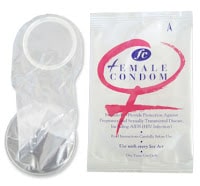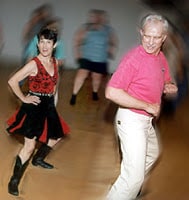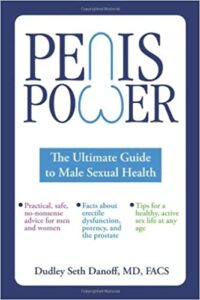FC2: New Female Condom
Guest blog by David Pittle, Ph.D
Amy, a client of mine, reported, “The condom broke!” twice within a week. I assumed that her boyfriend must not know how to use a condom properly, because condoms rarely break when used properly. He must have been using oil-based lubricant, stretching the condom beyond its limits, putting it on without leave a reservoir space for the ejaculate, or using expired condoms.
Now all of that is teachable, but the boyfriend was not my client.I wanted to put the process in Amy’s hands. Years ago, I knew about the “female condom.” The original female condom never got much acceptance. As Joan Price wrote, “It was like having sex in a shower curtain.”
But the new FC2, second generation of female condom, is a different experience and a great improvement. It is soft and pliable, very easy to use, and made of nitrile, like today’s medical exam gloves.
The FC2 condom has many advantages. It . . .
- Is very comfortable
- Is not constricting
- Feels good to both the man and the woman
- Warms to the temperature of the body, or more specifically, to the vagina
- Can be put on hours before intercourse
- Can be left in after ejaculation
- Is impervious to oil-based lubricants
- Is easy to insert
- Aids in stimulating the clitoris for some women.
But the most important advantage from the woman’s point of view. . .
- It is under control of the woman before she gets involved in the passion of sexual arousal.
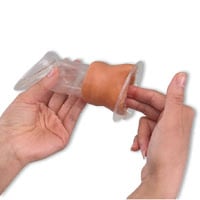 The female condom is easy to use. Insertion can be made a part of foreplay. Some couples make that part of their ritual. It is very hot for him to do the insertion—under her direction.
The female condom is easy to use. Insertion can be made a part of foreplay. Some couples make that part of their ritual. It is very hot for him to do the insertion—under her direction.
As we men age, our erectile response may become weaker or take longer. One of the great things about the FC2 is that the man can insert a flaccid penis before working up to an erection.
Strictly speaking, the FC2 is not a male sex toy, but it really can be. A man can use it, and I have, by himself, and find the sensations very pleasurable. One can’t say this about the standard male condom. This is not a minor issue.
When the FC2 female condom was introduced, it was pricey, but the cost has dropped. It’s still more than a male condom, but not enough to be a problem.
Most drug stores still don’t carry the FC2 in stock, but Walgreens does, and others will follow as the FC2 gets more popular. They can also be purchased on-line from many vendors including Amazon.
Make the effort to buy the female condom, FC2, and try it. The FC2 is an excellent help in pleasuring ourselves and our partner while we protect our sexual health. You may never want to go back to the male condom—or, of course, to unprotected sex.
David M. Pittle, Ph.D., is a therapist in San Rafael, CA, who has been helping people
with sexual issues for over thirty years. Many of his clients are age 50-80,
when good sex is important, and dissatisfaction may lead to loss of shared
intimacy that can threaten the total relationship. David specializes in helping
women who are not experiencing sexual satisfaction and men with non-medical and
medically-related erectile dysfunction or other issues. Visit his website here.
Please see Dr. Pittle’s reviews on this blog of Hitachi Magic Wand , Vacuum Erection Devices, and Tenga Egg.
(I am sad to tell you that my friend, sex therapist David Pittle died December 2017. We value his sex toy reviews. Read his other reviews here.)
He Danced into My Heart: Memories and Reflections
Tomorrow, December 11, is the 12-year anniversary of the day that I met
Robert Rice and my life — personal and professional — flipped itself
upside down. Robert walked into the line dance class I was teaching, and I tried to remember to breathe.
It was lust at first sight… on my part. He, I learned later, was just looking for a new place to dance.
I didn’t know that night that I’d fall in love with this man. I only knew that his blue eyes and warm smile melted my world, and I had a sudden urge (which I resisted) to touch the chest hair that peeked from the V of his shirt. When he started to roll his hips, revealing a lifetime of dance and a self-assurance in his 64-year-old dancer’s body, I felt my own hips strain to match his rhythm. I kept forgetting the steps to the dance I was teaching.
It took nine months before I finally caressed that chest hair and our hips matched rhythm horizontally instead of vertically. I, whose motto had been “the only problem with instant gratification is that it takes too long,” pursued a man who didn’t believe in rushing anything. (Our complete story is in my first book about senior sex: Better Than I Ever Expected: Straight Talk about Sex After Sixty.)
Our first kiss didn’t happen for nine months — but once we started, we never stopped kissing.
I lost Robert to cancer on August 2, 2008 — exactly seven years after our first kiss.
Today, I made myself coffee in the coffee pot that he had used, held my cup to my cheek as he had done. I thought of the post I had written in 2010 — “I’m Going to Make You Coffee….”
I thought first that I would republish that post today. But another two-plus years have passed since I wrote that. As strong as the memories are still, and as freely as the tears flow at those memories, my grief has more layers of time cushioning it. The grief isn’t so raw and I’m not powerless or joyless from it. It still floods over me, but not all the time, and when it does, I know how to swim to the top and breathe again. My muscles are strong from practice.
For those of you who have lost a loved one, I think it’s important to share this with you: It does get easier. We all proceed in our own time frame. There’s no “right” amount of time to grieve, and anyone who tells you, “you should be over it by now” should be educated (first I wrote “pilloried,” but I changed my mind).
 I’ve also learned that we can move forward and hold onto the memories at the same time. I’m listed with three online dating sites, and I’m enthusiastic about welcoming male company into my life. I still miss Robert every day. I am not looking to replace him — couldn’t be done even if I wanted to, and I don’t want to. Any new man I get involved with will have to accept that I’m not going to take Robert’s paintings off the wall or hide the urn that holds his ashes.
I’ve also learned that we can move forward and hold onto the memories at the same time. I’m listed with three online dating sites, and I’m enthusiastic about welcoming male company into my life. I still miss Robert every day. I am not looking to replace him — couldn’t be done even if I wanted to, and I don’t want to. Any new man I get involved with will have to accept that I’m not going to take Robert’s paintings off the wall or hide the urn that holds his ashes.
I’m 69 — I bring my whole lifetime of experiences with me into whatever path I take next. That includes my memories of the man who taught me how richly I could love and be loved.
Crave Duet: a most unusual vibrator
 The Crave Duet completely surprised me! I had seen photos of this unusual clitoral vibrator and read reviews, so I thought I’d like it — but I had no idea I’d love it.I originally planned to include it in my holiday gift guide 2012, but after testing it, I knew the Crave Duet deserved a complete review.The two-prong shape is the most unique quality of this delightful little vibrator. The dual motor makes each prong vibrate independently, and when the prongs surround your clitoris, it’s a wild sensation indeed!
The Crave Duet completely surprised me! I had seen photos of this unusual clitoral vibrator and read reviews, so I thought I’d like it — but I had no idea I’d love it.I originally planned to include it in my holiday gift guide 2012, but after testing it, I knew the Crave Duet deserved a complete review.The two-prong shape is the most unique quality of this delightful little vibrator. The dual motor makes each prong vibrate independently, and when the prongs surround your clitoris, it’s a wild sensation indeed!
 If you like strong, pinpoint pressure on your clitoris, you can pinch your clit with the prongs — they open and close a little bit (do not force it to open more than pinky-width) — if that’s what you like.
If you like strong, pinpoint pressure on your clitoris, you can pinch your clit with the prongs — they open and close a little bit (do not force it to open more than pinky-width) — if that’s what you like.
 Or, to stimulate a larger area and not pinch anything, you can nest it horizontally between your labia so that the prongs surround your clitoris and hug much of the vulva. This worked for me! This would also work during partner penetration when your clit needs an extra assist.
Or, to stimulate a larger area and not pinch anything, you can nest it horizontally between your labia so that the prongs surround your clitoris and hug much of the vulva. This worked for me! This would also work during partner penetration when your clit needs an extra assist.
 The Duet is also unusual because it charges via your UBS port. Pull apart the silver part from the silicone, plug the USB in, press the center
The Duet is also unusual because it charges via your UBS port. Pull apart the silver part from the silicone, plug the USB in, press the center
button, and Duet recharges in an hour or two. No cords or batteries needed ever.You
can buy a version of the Duet that acts as a real flash drive, too, but why
bother? Do you really need to carry your work files in your vibrator?
Before I tried the Duet myself, I read some early reviews. Some reviewers said they wanted to love the Duet, but they didn’t because it either wasn’t strong enough or, because the prong tips were practically touching, they pinched their clits uncomfortably in the normal position.
 Crave listened to reviewers and customers and resolved these problems admirably in the second generation Duet. Now there’s an extra-strong “turbo” setting — which is strong enough even for me! The shape has been redesigned with a wider gap, so it hugs instead of pinches, unless you intentionally close the gap. (Anyone who bought the first generation may receive a free replacement — now that’s customer service.)
Crave listened to reviewers and customers and resolved these problems admirably in the second generation Duet. Now there’s an extra-strong “turbo” setting — which is strong enough even for me! The shape has been redesigned with a wider gap, so it hugs instead of pinches, unless you intentionally close the gap. (Anyone who bought the first generation may receive a free replacement — now that’s customer service.)
One con: The controls at the end of the shiny part are impossible to distinguish unless you’re peering at them up close with your reading glasses on. The middle one is obvious: press for off, on, or to change patterns. But the “+” and “-” are easily confused, and you don’t want to turn it down when you intend to turn it up.
My suggestion: Start with it on the highest “+” setting you might want, and leave it there, adjusting sensation by pressure. Either that or memorize which side the “+” button is on before you get started.
I don’t usually discuss packaging in my sex toy reviews — it’s usually a “who cares?” aspect of a product. But the Crave packaging is laudable: instead of a big box with lots of plastic around the product, the Duet arrives in a tiny cardboard box, with a “quick start guide” printed right on the box.
A more detailed user’s guide is online, and the URL is engraved on a tiny charm. The charm idea is cute but silly, because you can’t attach the charm to the zipper pull of the case (I tried). So you’ll probably just lose it unless you wear it on a chain as statement jewelry or put it on a key ring.
 The Crave Duet comes with a slim, discreet storage case that you can fit in a purse, pocket, or laptop carrier, making the Duet easy to carry with you should the need arise before you get home (nothing’s that urgent for me these days, but your urges may vary!) or in case you anticipate an interesting date. I’ll definitely carry the Duet on my next trip!
The Crave Duet comes with a slim, discreet storage case that you can fit in a purse, pocket, or laptop carrier, making the Duet easy to carry with you should the need arise before you get home (nothing’s that urgent for me these days, but your urges may vary!) or in case you anticipate an interesting date. I’ll definitely carry the Duet on my next trip!
 The business end of the Duet is silicone, so be sure to use water-based lubricant with it — not silicone lube. The whole thing is waterproof — just be careful that it’s all the way closed so the seam is sealed before taking it into the tub with you or washing it. It’s also very quiet!
The business end of the Duet is silicone, so be sure to use water-based lubricant with it — not silicone lube. The whole thing is waterproof — just be careful that it’s all the way closed so the seam is sealed before taking it into the tub with you or washing it. It’s also very quiet!
I hope you’ll try the Crave Duet and let me know if you enjoy it as much as I do. Happy buzzing!
Penis Power: Interview with Dudley Danoff
Urologist Dudley S. Danoff, MD, FACS, is the author of Penis Power: The Ultimate Guide to Male Sexual Health (Del Monaco Press, 2011). It’s an upbeat and even entertaining guide to the complexities, myths, facts, and vagaries of owning a penis (or, in my case, liking penises and being endlessly fascinated by them). Dr. Danoff covers how they work and what’s going on when they don’t work—psychologically as well as physiologically.
My male readers often write me with age-related questions about their penises: what’s a “normal” change with age vs. what’s a medical problem, how they can deal with erection difficulties, how to negotiate new needs and issues with a partner. “We are tragically ill-informed about the penis,” says Dr. Danoff, and he aims to change that.
Although this book is not specifically aimed at our age group, all of it applies to us, and I guarantee you’ll say, “I didn’t know that” several times as you read, even if you’ve owned a penis for 50, 60, or 70 years.
I invited Dr. Danoff to answer questions that specifically address men age 60+ and the women in their lives. I welcome your comments.
Q: What is your big message to our older men?
A: Sex is good for you. It maintains overall physical strength and cardiovascular health, and most of all, it keeps you invigorated. A man’s penis is there to serve him from puberty to old age.
Q: What are the most common misunderstandings that men age 60+ have about their penises or about their sexuality in general? What do you wish all men knew as they aged?
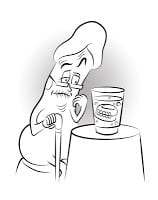 A: By far, the most frequent complaint I hear from men is that they do not have the same level of sexual desire they used to have. It takes longer to get an erection, it takes longer to ejaculate, it takes longer to get aroused again after they make love, and their erections are not as firm. These conditions are all predictable changes that occur as men get older.
A: By far, the most frequent complaint I hear from men is that they do not have the same level of sexual desire they used to have. It takes longer to get an erection, it takes longer to ejaculate, it takes longer to get aroused again after they make love, and their erections are not as firm. These conditions are all predictable changes that occur as men get older.
Attitude is the key to penis longevity. My super-potent patients tell me that sex gives them as much joy at 70 as it did at 20. Some say the sex is even better! Equal pleasure can be obtained from occasional, prolonged intercourse with one orgasm as with frequent, rapid intercourse with multiple orgasms.
All men, as they age, deserve active, healthy sex lives as long as they remain physically fit. Do not expect to do at 60 what you did at 40. Adjust your sexual activities as your body changes, just as you adjust other activities. Look upon the adjustment as both a new challenge and a new opportunity.
As you age, learn to use your mind and imagination to make up in creativity what you may lack in physical strength. As long as you are able to breathe, move your extremities, maintain relative control over your bodily functions, remain alert enough to identify the date and day of the week, and sustain a positive mental outlook, you can continue to exercise your penis power indefinitely.
Q: What would you say to many men age 60+ who tell me that they don’t get good information or direction from their urologists when they report undependable or nonexistent erections? They are commonly told, “Well, you’re older now,” or “It’s ED,” without a medical workup to see whether some underlying condition is causing the ED.
A: Find another urologist who is knowledgeable about erectile dysfunction and is willing and able to thoroughly evaluate you. A comprehensive evaluation, including a full cardiovascular evaluation, by a qualified urologist is essential. Endocrine issues, such as low testosterone or unrecognized diabetes, can then be treated, and erectile dysfunction will improve. Knowledge is power. There are many treatments on the urologic menu for erectile dysfunction, but first you need a proper diagnosis to identify the underlying cause. Treatment is both available and effective in almost all cases and will result in satisfactory erections.
Q: Many men would rather sever their own leg than admit to a doctor that they are experiencing erectile difficulties. Why is it important to see a doctor before self-treating with drugs or other assists?
A: Many serious medical conditions that are first manifested by erectile difficulties go unrecognized. It is absolutely essential to get a full evaluation by a qualified urologist in all cases of erectile dysfunction in order to determine the presence or absence of some serious (or not so serious) medical problem and treat it accordingly. For example, if low serum testosterone is found, testosterone replacement therapy can give spectacular results. Under no circumstances should a man self-treat his erectile dysfunction with over-the-counter preparations without first determining the presence or absence of an underlying medical condition that is correctable.
Q: How can women enhance their partner’s and their own sexual pleasure when erections and intercourse are not the main events?
 A: Most importantly, do not think old! Sexual pleasure is all about attitude. If your mind is strong and your partner’s mind is strong, intimacy and sex without vaginal penetration can be enormously pleasurable. The key is not to lament what you have lost. Be grateful for what you still have and make the most of it. Age is not a deterrent to great sex. Rather, it is a challenge and an opportunity.
A: Most importantly, do not think old! Sexual pleasure is all about attitude. If your mind is strong and your partner’s mind is strong, intimacy and sex without vaginal penetration can be enormously pleasurable. The key is not to lament what you have lost. Be grateful for what you still have and make the most of it. Age is not a deterrent to great sex. Rather, it is a challenge and an opportunity.
If you keep your enthusiasm, you can compensate for or even delay the effects of aging. You do not stop having sex because you are old—you get old because you stop having sex! Talking candidly with your partner about aging is the best way to find a solution for maintaining a healthy sex life.
Q: What else do you want women to understand about their male partners?
A: Older men are just as penocentric as younger men are, even though capacity may be diminished. I would encourage older women to become more “penis oriented.” Older women who are penis oriented have more fun and also have better marriages, more faithful partners, and greater personal fulfillment in all aspects of their lives. If you believe that each partner has the mutual responsibility to satisfy the other’s needs, then it follows that you will hold up your end of the bargain as a woman by making your partner’s penis one of your top priorities.
Being penis oriented does not imply a belittlement of female sexuality. It simply means learning to understand and accommodate an older man’s penis needs by approaching that task with all of the pride and skill that you would bring to any other endeavor. I assure the older woman that if you take the steps to become informed, you and your man will reap rewards you have only dreamed about.
Images are from Penis Power: The Ultimate Guide to Male Sexual Health by Dudley Seth Danoff, MD. ©2011 Dudley Seth Danoff. Reprinted by permission of Dudley Seth Danoff. Copies of the book are available at your local bookstore or may be ordered through Amazon.com.
